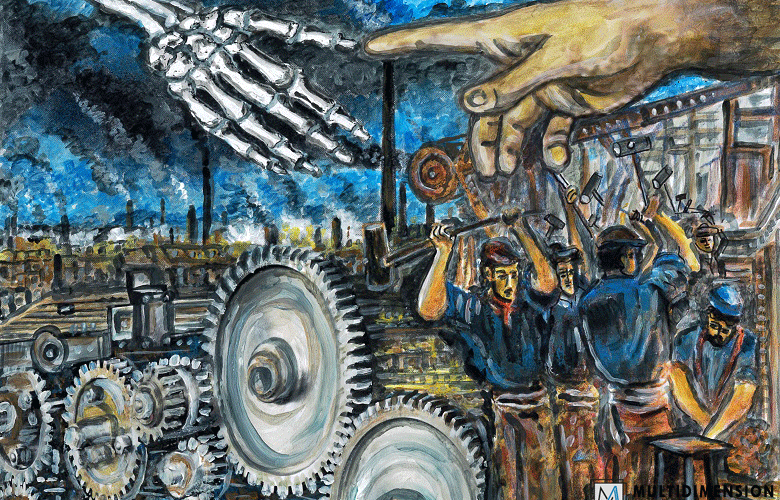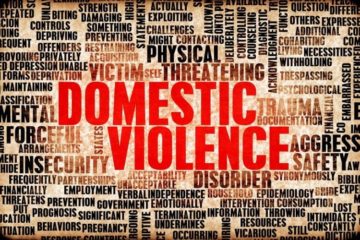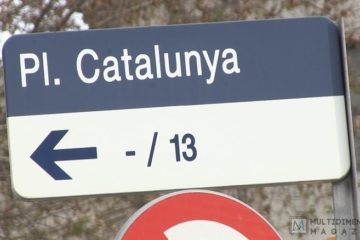Written By: Senex
Paris, France
Illustration: Avijit Ghosh
A brief analysis
When we look at the current status of immigration (migration and refugees), we are looking at a fairly complex picture. All of them have one thing in common, that is the movement of people from one territorial entity to another on a permanent or a semi-permanent basis. Such movements of people in significant numbers occur for various reasons. Most common and historic reason is economic. For millenniums humans had been nomadic hunter gatherers and moving in search for food and water was a way of life. Agriculture changed that and a revolution took place around the world some 10 to 12 thousand years ago and gradually the majority of them settled down. This in turn gave value, both economic and sentimental to the land where they settled down. It became home. It provided for their needs and created attachment. Of course, this was not a permanent situation. When conditions changed and the present home was insufficient to meet all their needs, they would move again and resettle somewhere better. Often, to do this they had to invade and unseat others who were living there. However, the world was vast and the human population was miniscule at the dawn of history.
There was little in terms of proprietorship. Might was right and if one group had the power and the means to dislodge another, that was all that was required.
The equator and the tropics with temperate climate were the most amenable to easy living. The further one got away from the equator the more extreme the winter weather and hence more difficult it was too survive. Similarly, one had to be close to water. Most civilsations (the largest groupings of people sharing common culture) were by the banks of the largest rivers. Major changes in demographics took place with the agricultural revolution as the birthrate shot up and the death rates dropped (a phenomenon we will see again with the industrial revolution many millenniums later). The share of economic resources decreased when populations continued to grow and the pressure to find new pastures was there every time a certain threshold was crossed. Invasion and war often was an easier means of acquiring an ongoing settlement than starting somewhere anew from square one. On a less violent note, trade and commerce also developed as people realised the variety that different places were capable of providing and their ability to barter their own excess production. People went further and further afield to do such trade. By the end of the 15th century and the beginning of the 16th humans had completed the circumnavigation of the Earth and there was nowhere left to go. Great myths were destroyed and nobody fell off the edge of the world while doing so. Cartography became more refined and geography was tamed. After the 15th century most of this was done by the Europeans, even if their knowledge was acquired from the rest of the world, whose power had waned. Of course the Europeans added, improved and put their own stamp on such technologies and knowledge. It is to be noted that Europe was also the most densely populated continent at the beginning of the 16th century.
Looking at Immigration – Part 1
Search for greener pastures combined with population boom saw waves of migration and a great impetus for trade by the Europeans to the far reaches of the Earth in an unprecedented way; a process that would continue well into the 20th century. But these migrations were quite different in nature from what we see today. They were more often than not, invasions followed by imposition of European rule. That was the case in the New World, the Americas, Australia, New Zealand, the many Islands in Oceania, Polynesia, Melanesia, and parts of Africa (largely places with indigenous or tribal culture that couldn’t muster sufficient resistence against European gunpower to defend themselves). Other places such as India, China, much of Asia with civilisations with complex cultures and structures, were far more difficult to conquer by force; so the first stage was reletively peaceful trade and commerce, till firm footholds were establised, while studying local political, military and cultural behaviour; all of which were to be eventually put into use to dominate, takeover and control the local population. This was loosely how one would describe the colonial machine that led to Empire building. We notice that most European migration during this period was to the former group of places. The latter had only required enough members of the European community that was necessary to run the administrative machinery. They had no desire to integrate with the larger local population. The Spanish and the Portuguese were the exceptions to this practise (possibly because of cohabitation with the Arabs who had ruled over them in Iberia for 800 years). Hence we find relatively more racial integration in South and Central America compared to the British and French (Dutch, German, Belgian, Swedish…) colonies “East is East, and West is West, and never the twain shall meet.”
We have come a long way from that. Warring for territory was almost brought to a halt. After the end of WWII countries were created out of all territories of the world, one way or the other. Independence was given to them, at least a semblance of it (even despite a strong opposition against it in some Western countries). This order was fundamentally important to modern capitalism that was to dominate the 20th century, where the West (led by the USA) would reap the benefits of a globalised economy. Here we can better see how the control of the “3 factors of production: land, labour and capital; the output (finished goods and services)” we saw in Part 1 would become significantly more meaningful. The blinkered and selfish vision of the capitalists who ruled the world at that moment would restructure the world along the economic lines of the haves and the have-nots. The vast majority of the world’s have-nots were in the non-Euro-centric parts of the world. Unfortunately, most of the world resources, both raw material and labour were also there. So the brilliant design of freeing the global movement of all factors of production while simultaneously, freezing the movement of labour in their original countries of origin, achieved the twin goals of the benefits of “free trade” and eschewthe responsibility for the disenfranchised labour. The democratic movements that were very active in their home countries were already eating away at the profits of the “robber barons” of the 19th and early 20th. The postwar creation of a global system of trade, commerce and finance ensured that these powerful Western countries could maintain near total control of the economic processes in the rest of the world without any responsibility for the local governance of these very same countries. To do this they had to ensure they always had “friendly” governments and local decision-makers who wouldn’t oppose them. Whenever this was not the case, they resorted to regime change. The huge colonial machinery they had previously created across the world served them well in this postwar period. For example in the last 50 years 45 coup d’etats have taken place in the 16 ex-colonies of France. These were all regime changes. It was to eliminate any opposition to all the arrangements France had made for its own benefit. Obviously, all this was/is at a high cost to those impoverished countries. They become more impoverished and their people suffered. But the worst that happened was to keep them distracted from the real cause of their sufferings, countless seeds of division have been sown in Africa, resulting in countless local ennemities which can at a drop of a hat be ignited to war. Africa has been kept in constant turmoil and chaos, all the while it is being depleted of its enormous wealth of natural resources.
Of course, France was not alone. Britain, Holland, the USA, Australia, Belgium, Spain… have also been doing the same thing and not just in Africa but wherever they can. Indonesia, Papua New Guinea, South and Central America… in short, wherever they possibly could.
Since coup d’etats are becoming unfashionable as their own populations have started becoming nosey and question their governments, they have resorted to another ploy. The ICC (International Court of Justice). Those very stooges they let loose in the ex-colonies now turn rogues and are conveniently painted rogues by the self-righteous West. From Noriega to Saddam, from Idi Amin to Mobuto all the one time darling become villians to be killed or brought to “justice. Here is an excerpt from the opening scene of Hugo Blick’s “Black Earth Rising” (now a BBC/Netflix series) based on the Rwanda genocide which is quite telling:
BLACK EARTH RISING – (opening scene, somewhere in London… question time after Miss Ashby deliver a talk. Jay a young black man asks her a question.)
Jay: “Miss Ashby, or Eve… First may I say, it’s amazing that you’re here. One of the world’s leading prosecutors in international criminal law, and I get to ask you a question.
Miss Ashby: Which is…
Jay: Ah, yes, it’s this:What motivates you to vomit up all this neocolonialst bullshit?
Miss Ashby: I’m motivated to see justice done, wherever the crime takes place.
Jay: And it just so happens, all these crimes, they take place in Africa?
Miss Ashby: We only prosecute those cases a country is unable or unwilling to prosecute for itself.
Jay: So what about the West Bank?
Miss Ashby: I believe that’s an active situation.
Jay: Situation? But when it comes to action, there are at least 40 individuals being prosecuted by the international Criminal Court now. And each and every one of them are Africans. Black Africans.
Miss Ashby: And I’m sure they all have a case to answer, properly represented in a court of law.
Jay: But you’re telling us that yousuccessfully prosecuted one of those cases.
Miss Ashby: Yes
Jay: That doesn’t make you embarrassed?
Miss Ashby: Embarressed? Not at all.
Jay: Really? Why not? After all, isn’t what you do just the latest example of self-righteous Western paternalism? Of exactly the same sort that for hundereds of years have systematically decimated that continent of its wealth, its governments, its religion and most of all its people. And now, having done it you have the temerity to expect them to turn to you for justice. For justice that only you can provide for crimes that surely would never have happened had your world not gone there in the first place. So you’re right, I wouldn’t feel embarrassed. ‘Cause if I was you, I’d feel fucking ashamed. African problems deserve African solutions. They don’t deserve you.”
This barely touches the tip of the iceberg. If such a court had a modicum of justice, real war criminals like Kissinger, Allende, Dick Cheney, Tony Blair and countless others in the West wouldn’t be basking in luxury. It is both a sham and a shame. Unfortunately, these leaders of the West did not have the vision to understand that one day the very chaos on which they have been thriving would become the cause of a tsunami of refugees that would start coming to Europe in ever growing volumes and made they lives miserable. How that has been unfolding we shall see in the next installment on immigration.




